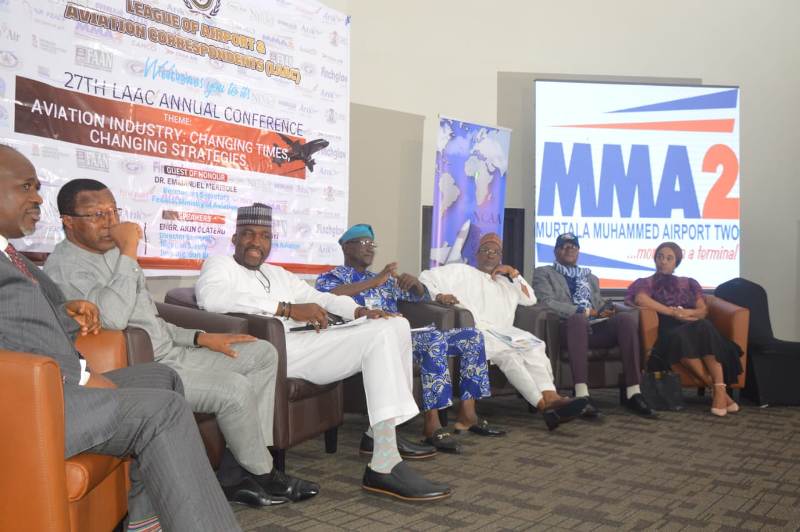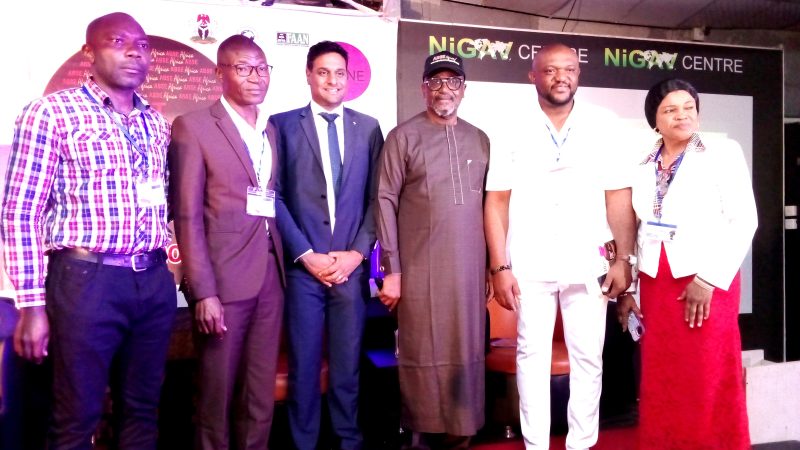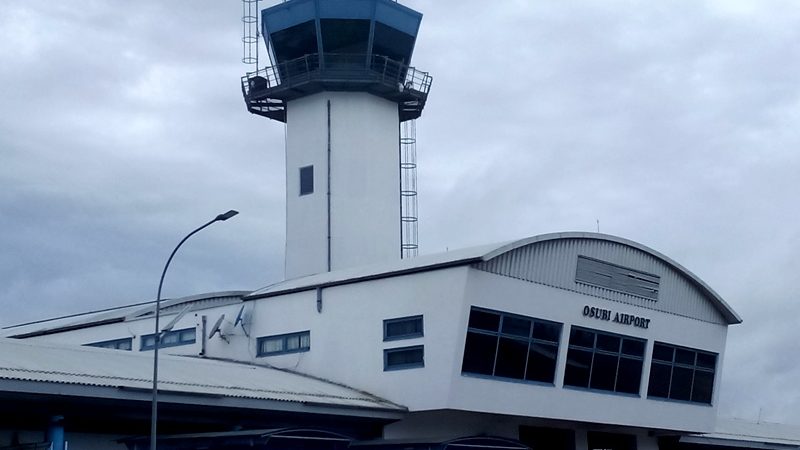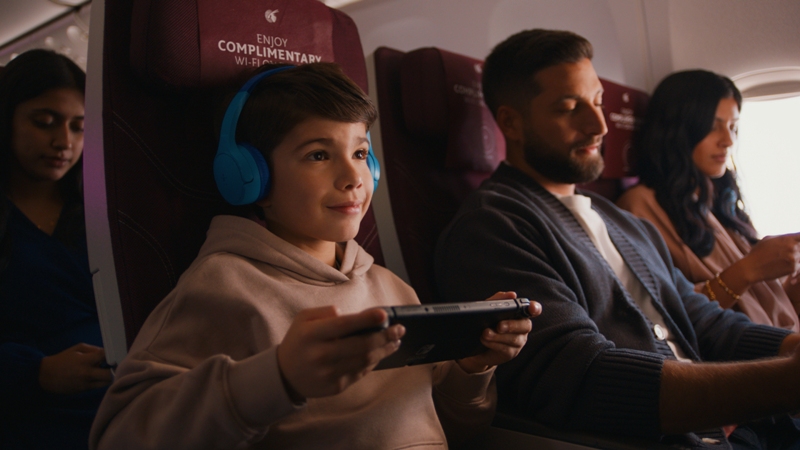Airline Business In Nigeria: Changing Times, Changing Strategies

“Change is something that is permanent. You can’t avoid change in life. It is something that will always occur and happen,” said Engr. Akin Olateru, Director General, Nigeria Safety Investigation Bureau (NSIB) at the 27th edition of the annual conference of the League of Airport and Aviation Correspondents (LAAC) with the theme, Aviation Industry: Changing Times, Changing Strategies, held at Providence Hotel, Lagos, July 27th, 2023.
“Every time an airline fails in Nigeria, it is a loss to the entire country. There is a need to take things in a different way,” said Mr. Roland Iyayi, Chief Executive Officer, TopBrass Aviation, during the panel session of the conference.
Iyayi said that “an airline can only grow if it takes the growth plan, piece meal. The NCAA needs to review policies that are detrimental to the growth of the industry,” adding that “for airlines in Nigeria and Africa to be profitable, we have to look at how to plan growth.”
In his contribution, former President, Aviation Safety Round Table Initiative (ASRTI), Dr. Gabriel Olowo said “every 10 years circle, an airline comes and fails. We keep having new ones. They come, repeat the same circle of the failed ones. Most of the airline investors do not learn from the mistakes of the past.”
“If I were them, I will avoid red routes after operating for three months. Our airlines should learn from the errors of the past. This is part of the strategies that should change,” he said.
“They should go and take a case study of Bellview, ADC, Okada and many others. Look at how and why they failed. If the government was responsible for the problem, we must think of how to handle the government. The government has always been the problem. They tell you, you can’t fly the flag. Air Peace has been flying the flag to Ghana, Liberia, and China now, and am sure if you look at those routes, for them not to be in red is questionable. The guy (Air Peace Operator) kept saying it and nobody is attending to him, until he rides into crisis. Then, AMCON will come, like they did to Arik and to Aero. That is not the way forward,” added Olowo.
Muneer Bankole, Managing Director of Medview Airlines advocates collaboration as way forward, saying “things can still change for the better. For that change to come, we have to go to the basics.”
“Nigerian airlines should come together. There is no sentiment about it. You have 17 aircraft. The other person has five aircraft. Go and put heads together and discuss with a good mind. Open your heart, and let people know who is speaking so that Nigeria can drive a new way forward,” he added.
The Director General, Civil Aviation, Nigeria Civil Aviation Authority (NCAA), Capt. Musa Nuhu evaluated the changing times and proposed the ways and new strategies required for industry’s progress. He said: “Considering that air transport has become very critical now due to other challenges of travelling by road, there is growing demand for aviation services which has encouraged many airlines to establish or plan to establish operations in Nigeria.
In addition, we are also beginning to see operators moving away from poor choice of aircraft, poor or bad route planning and operating models. Following the outbreak of the devastating pandemic which almost brought humanity to its knees, many Nigerian airline operators cutting across established and new entrants are appreciating the economics or intrinsic benefits of operating newer and narrow-body aircraft or single-aisle aircraft like Boeing 707, Boeing 727, Boeing 737, Boeing 757, Airbus A320 and Embraer E-Jet families as their immediate recovery and survival strategy.
This is linked to prohibitive cost of fuelling, management and maintenance of larger aircraft. In this category are big jets configured for General Aviation such as Boeing 740/777, Boeing 767, Boeing 787, Airbus A330/340/380, MD-11 and MD-11ER. This is why operators should choose the aircraft that best suits their business plan as choice of decrepit and wrong aircraft-type for flight operations could be greatest undoing of an airline.”
“For a fact, global airline industry is one of the most competitive industries. Therefore, to effective tap into its huge market opportunity, cooperative behaviour and alliances among airlines became inevitable as it is prevalent in other climes. In actual fact, the first large alliance began in 1989 with large-scale code sharing between Northwest Airlines and KLM. As of now, there are three (3) global airline alliances operating in the air travel industry, namely: Star Alliance, SkyTeam, and Oneworld. Members of SkyTeam are Air France-KLM, Delta Virgin Atlantic; Under Oneworld we have American Airlines, British Airways and Iberia; and under Star Alliance, which is world’s largest global airline alliance, we have United Airlines, Air Canada and Lufthansa.
The airline industry in Nigeria, which contributed over $1.7 billion as well as supports over 240,000 jobs directly and indirectly, transformed to a more competitive market following its deregulation for a couple of decades ago. Taking a cue from legendary global alliances, sometime in 2022, there was also a revolutionary initiative in the industry when about six of our operators signed a pact tagged the ‘Spring Alliance’ to mutually support one another’s operations and improve service delivery for the mutual benefit of the passengers and the airlines alike.
Even though the ‘Spring Alliance’ was Nigerian initiative, there is window for other like-minded airlines around the world to key into the scheme. Efficiency is the barometer for success in the industry as airlines’ On-Time-Performance (OTP) is an indispensable condition. Without any iota of doubt, such landmark passenger-centric initiative will bring about sustainability and stability of airlines operations in terms of connectivity, low capacity and enhancement of seamless facilitation, thereby preventing flight delays and cancellations. Even though the phenomenon of delays is global, we are poised to minimize the number of delays to the simplest minimum.
Synergy, collaboration, cooperation or merger is the rule of the game. I want to encourage Nigerian airlines to avoid I-want-to-do-it-alone as reflected in their lone-wolf operational tactic. While I want to appreciate our operators for a job well done in terms of the spirit and the impact, we urge airlines to partner with their willing foreign counterparts through code sharing in developing Nigeria’s aviation industry. I remember that at a phase, Air France interlined with Aero Contractors. By nature and approach, we should manifestly embrace collaboration and exhibit sustained commitment lest average Nigerian carriers become ever more fragmented and less competitive with mere individual identities,” he explained.
He continued: “The cynics have once expressed views that growth in the aviation sector could only double after 15 years but the reverse in the case. Rather, we are seeing steady growth in the domestic sector with more airlines processing their Air Operator Certificates (AOCs) and the rate of connections among cities increasing. We are witnessing Nigerian airlines embarking on aggressive, but strategic expansion in regional connectivity and route strength as well.”







